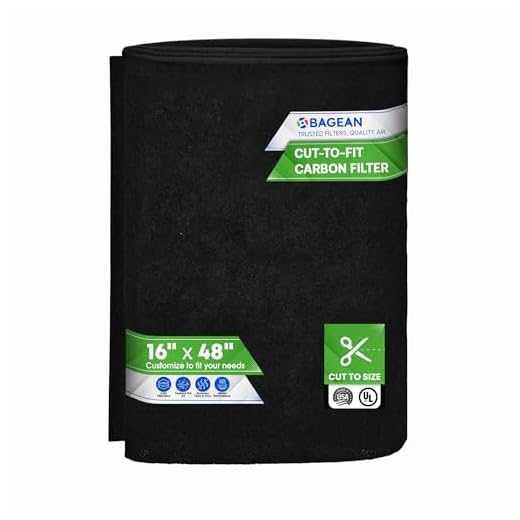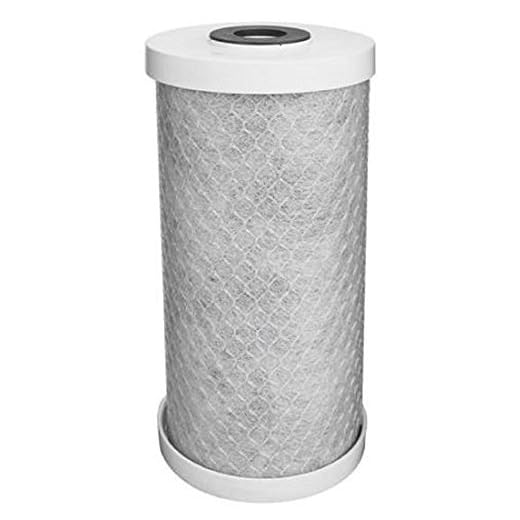




Maintenance and Replacement
Regular maintenance of an activated carbon filter is vital for ensuring its efficiency and longevity. Cleaning the filter housing and inspecting the carbon material for saturation can prevent issues associated with reduced performance. Most filters require periodic checks to ensure they are performing at optimal levels. Neglecting maintenance may lead to a decline in air or water quality, thus affecting overall health and comfort.
Replacing the activated carbon itself depends on usage, but it is generally advisable to follow manufacturer recommendations. Factors such as water quality, contaminants present, and the volume of air or water processed all influence replacement frequency. By keeping track of usage patterns and adhering to suggested intervals, users can maintain the effectiveness of their filtration system while avoiding unnecessary costs.
How Often Should You Change Your Filter?
The lifespan of an activated carbon filter depends on several factors. These include the type of contaminants it is filtering, frequency of use, and overall air quality in the environment. Generally, many manufacturers suggest changing the filter every six to twelve months. However, some filters may last longer if they are maintained properly and are not subjected to heavy use.
Monitoring the filter’s performance is essential for ensuring its effectiveness. A noticeable decline in air quality or an increase in unpleasant odors often indicates that it’s time for a replacement. Regular checks can help identify when the activated carbon is saturated and unable to adsorb contaminants. Adhering to specific maintenance recommendations can prolong the life of your filter while ensuring optimal air purification.
Certifications and Standards
When purchasing an activated carbon filter, it’s crucial to consider the certifications and standards that ensure product quality and safety. Look for filters that adhere to recognized guidelines, such as those set by the American National Standards Institute (ANSI) or the National Sanitation Foundation (NSF). These certifications indicate that the filter has been tested for its effectiveness in removing specific contaminants and has met rigorous performance criteria. A filter with credible certifications can provide peace of mind regarding its efficiency and safety for use in your home or office.
In addition to ANSI and NSF certifications, you may also encounter filters that comply with environmental regulations and product safety standards. The inclusion of such certifications often reflects the manufacturer’s commitment to high-quality materials and sustainable practices. Filters that meet these standards are typically more reliable and effective. Familiarizing yourself with these certifications will help guide your purchasing decisions and ensure you invest in a filter that meets your specific water purification needs.
Recognizing Trusted Quality Labels
When shopping for an activated carbon filter, it is essential to look for certifications that indicate reliability and performance. Labels from organizations like NSF International or the Water Quality Association signal compliance with rigorous testing and safety standards. These certifications ensure that the product has been evaluated for contaminant reduction capabilities, making it a trustworthy choice for consumers.
In addition to prominent certifications, certain brands may feature seals that reflect adherence to industry standards for environmental sustainability or health safety. Recognizing these labels can assist buyers in identifying high-quality products that not only meet performance expectations but also align with personal preferences for eco-friendliness and ethical sourcing. A well-regarded label often signifies a commitment to quality, enhancing consumer confidence in their purchase.
Price vs. Performance
When evaluating options for activated carbon filters, understanding the balance between price and performance is crucial. A lower-priced filter may seem appealing, but it often compromises effectiveness in removing contaminants. Investing in a higher-quality product can yield better results, particularly in areas heavily affected by pollutants, making it a worthwhile consideration for long-term health.
Additionally, it is essential to consider the lifespan and efficiency of the filter. Some filters might carry a higher upfront cost but offer a longer service life or increased performance. Assessing how frequently a filter needs to be replaced can significantly impact overall expenses. A strategic approach can ensure you select a product that delivers the desired air or water quality without unnecessary replacements and additional costs.
Evaluating Cost-Effectiveness in Long-Term Use
When considering an activated carbon filter, evaluating its price in relation to the performance it delivers over time is essential. A low initial cost might seem appealing, but budget-friendly options can sometimes lead to frequent replacements or ineffective filtration. Analyzing the lifespan of the filter and the amount of contaminants it can effectively reduce is crucial for understanding long-term value.
Investing in a higher-quality filter may result in a larger upfront expense but can prove to be more economical in the long run. Filters that maintain performance for extended periods can reduce waste and minimize the cost associated with regular filter changes. Moreover, assessing how well a filter performs in specific applications can aid in determining its overall cost-effectiveness as it relates to both health benefits and financial impact.
FAQS
What is an activated carbon filter?
An activated carbon filter is a device that uses activated carbon to remove impurities, odors, and contaminants from air or water by adsorption.
How often should I replace my activated carbon filter?
The frequency of replacement depends on usage and the specific filter model, but generally, filters should be changed every 2 to 6 months for optimal performance.
Are there certifications I should look for when buying an activated carbon filter?
Yes, look for trusted quality labels such as NSF/ANSI certifications, which indicate that the filter meets specific safety and performance standards.
How do I evaluate the cost-effectiveness of an activated carbon filter?
Consider both the initial purchase price and the long-term maintenance costs, including replacement filters, to determine overall value and effectiveness over time.
Can activated carbon filters remove all types of contaminants?
No, while activated carbon filters are effective at removing many chemicals and odors, they may not eliminate all contaminants, such as heavy metals or certain microorganisms.
Related Links
History of Activated Carbon in Water Filtration
What is an Activated Carbon Filter and How Does It Work
Roundup of the Best Activated Carbon Filters for Different Needs
